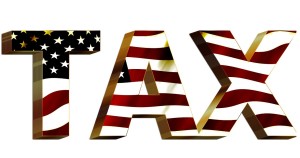 “Automatic” protection from your creditors is what you get as soon as you file for bankruptcy.
“Automatic” protection from your creditors is what you get as soon as you file for bankruptcy.
Many bankruptcy attorney ads say: “Stop garnishments.” “Stop foreclosures.” “Stop repossessions.” So bankruptcy stops all those bad things. But is it as good as it sounds? How does it really work?
The most basic protection that bankruptcy provides is the immediate protection that it gives you, your paycheck, your home, and your possessions. You get this protection the minute a bankruptcy is filed for you. Other than some rare exceptions, all collection efforts by creditors against you or your property must come to an immediate stop. You’ll hear this referred to as the “automatic stay.”
“Stay” is just a legal word for “stop” or “freeze.” “Automatic” means that this “stay” goes into effect right when your bankruptcy petition gets filed. That filing itself “operates as a stay” of virtually all creditors’ actions to pursue a debt or grab collateral.
But your creditors need to know that you filed for bankruptcy so that they can abide by the stay. If your creditors are all listed in your bankruptcy paperwork, they should all get informed by the bankruptcy court within about a week or so after your case is filed, without any additional action by either you or your attorney. If you are not anticipating any action against you by any of your creditors sooner than that, usually letting the court inform them of your bankruptcy is good enough. But if do expect some quick creditor action, be sure to talk with your attorney about it so you’re both on the same page about informing that creditor sooner.
But what if a creditor unexpectedly takes some action in the days after your bankruptcy is filed but before it finds out about it? The automatic stay is so powerful that if this does happen, the creditor must undo whatever action it took against you, even if it did not know about your bankruptcy filing. So if after your bankruptcy is filed, a creditor, for example, files a lawsuit against you or turns its earlier lawsuit into a judgment, that lawsuit must be dismissed or the judgment must be set aside.
If you are in New Jersey and you are having problems with debt, call me at (201) 676-0722 for a consultation, or email me at weilattorney@gmail.com.
Photo credit: Next TwentyEight


